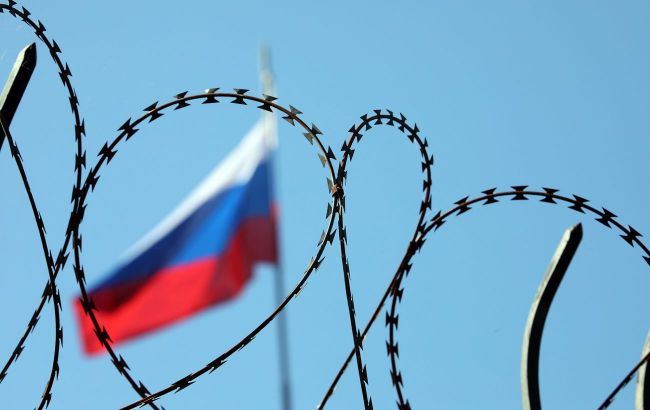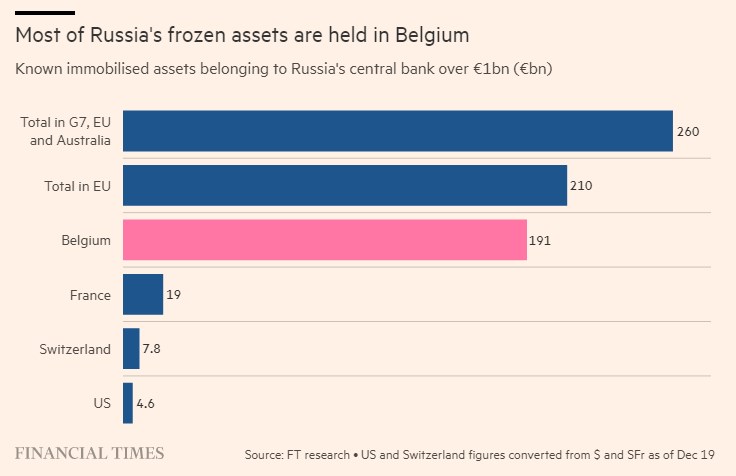Advance payment before reparations: Plan to transfer seized Russian assets to Ukraine
 Russian assets to be transferred to Ukraine as advance payment (Getty Images)
Russian assets to be transferred to Ukraine as advance payment (Getty Images)
Western countries have frozen Russian state assets totaling 260 billion euros following the invasion of Ukraine. These funds could be disbursed to Ukraine in tranches as an advance payment ahead of inevitable compensation from Russia for aggression, according to the Financial Times.
As outlined in the report, Washington has not publicly endorsed the confiscation of frozen assets but has privately agreed to it. In a recent G7 discussion document presented by U.S. officials, this is described as a countermeasure allowed by international law, urging Russia to cease aggression.
According to the document, such a move would be considered a lawful response to Russia's unlawful invasion of Ukraine if carried out by states that have "suffered" and been "particularly affected" by its aggression. This could include Ukraine's allies that have supported its economy and armed forces during the war.
U.S. officials have suggested that the seized assets could be transferred to Ukraine in tranches, possibly through the World Bank or the European Bank for Reconstruction and Development. This is seen as an advance before compensation to Ukraine, which Russia is ultimately obligated to pay under international law for its aggression.
Location of Russian assets
According to a European Commission document reviewed by the Financial Times, approximately 260 billion euros of the Central Bank of Russia's assets were frozen last year in G7, EU, and Australia. The majority of this sum, around 210 billion euros, is held in the EU, including cash and government bonds denominated in euros, dollars, and other currencies.
For comparison, the U.S. has frozen only a small amount of Russian state assets, approximately 5 billion dollars. In Europe, the primary portion of assets, around 191 billion euros, is held in Euroclear, a central securities depository based in Belgium. France reportedly froze the second-largest amount, around 19 billion euros, according to the French Ministry of Finance. Germany froze approximately 210 million euros.

Previous reports from the Financial Times suggested that the G7 countries were nearing the confiscation of Russian assets for transfer to Ukraine. The U.S. believes that the issue of confiscating Russian assets may be a topic of discussion among G7 leaders at the planned meeting on February 24, 2024.

